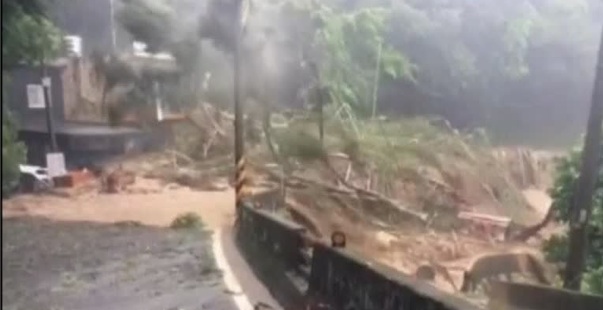
(Reuters) Many Taiwanese residents caught in the path of Typhoon Soudelor were left with their homes flooded after the powerful storm battered the island on Saturday (August 8), killing at least six and injuring 64.
In the greater Taipei area, the authorities worked to rescue around two dozen people trapped by a mudslide.
“We received a report from people earlier that there was a mudslide. Then we sent a fire truck and rescue vehicle here to evacuate people. At present we are rescuing about seven households and around 21 people,” a rescue worker told local TV.
Soudelor made landfall early in the morning on the island’s east-coast counties of Yilan and Hualien, bringing up to 1,000 mm (39 inches) of rain in mountainous northeastern areas and wind gusting up to 200 kph (124 mph). So far more than 7,500 people have been evacuated across the country.
The storm is one of the strongest to hit the island in many years.
“I haven’t been in (this situation) in the last 30-something years. (I’m) very nervous. I’ve been moving my stuff and preparing to run away,” said one unidentified resident in the greater Taipei area.
Many of those who haven’t been evacuated were left with the task of cleaning up their homes after they were flooded.
“Everything inside is house is floating in the water. I don’t know how to clean it up. It really makes me feel really anxious,” said one woman.
Train services were suspended or cancelled and most of local governments across Taiwan announced the closure of businesses and schools on Saturday due to the storm.
The Tropical Storm risk website said the typhoon was a category 2 storm on Saturday, on a scale of 1 to 5, and could weaken to a category 1, as it leaves Taiwan around mid-day.
Soudelour has drawn comparisons with 2009’s Typhoon Morakot, which cut a wide path of destruction over southern Taiwan, leaving about 700 people dead or missing and causing $3 billion worth of damage.
The storm is currently heading towards the eastern coast of China, where it is expected to wreak further destruction on Fujian province.
Typhoons are common at this time of year in the South China Sea and Pacific, picking up strength from warm waters before losing strength over land.







